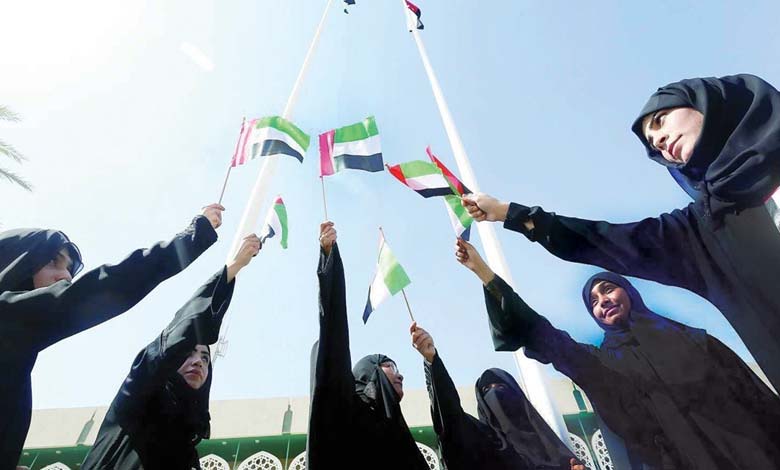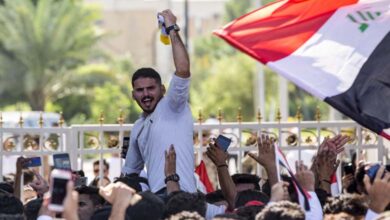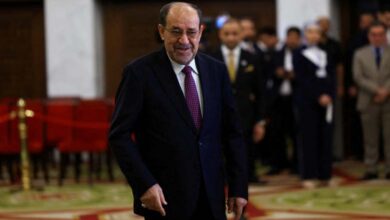Emirati Women: Pioneers of Political Empowerment

The United Arab Emirates presents a unique experience in women’s political empowerment, born of a deep conviction in their competence and ability to create a positive and meaningful impact.
The decision taken in 2019 to raise women’s representation in the Federal National Council to 50% reflected the wise leadership’s commitment to enhancing female participation in political life.
-
Emirati Women: Pioneers of Political Empowerment
-
Emirati Women’s Day: The World Reaps the Benefits of the Empowerment of the ‘Daughters of Zayed’
According to the Emirates News Agency (WAM), citing the Inter-Parliamentary Union, this initiative placed the UAE first in the Arab world and regionally in terms of women’s representation in parliament, and fourth globally.
The journey of Emirati women in the Federal National Council began in 2006, when they participated for the first time as voters and candidates.
-
On Emirati Women’s Day: How has the UAE supported women’s empowerment and unleashed their potential?
-
From Sheikha Al-Marri to Other Trailblazers: Inspiring Models for Women’s Empowerment in the UAE
In the 14th legislative term of 2007, the council included nine women, representing 22.5% of members. In 2011, during the 15th term, seven women held seats, accounting for 17.5%. In 2015, during the 16th term, eight women represented 22%. This figure rose to 50% in the 17th legislative term of 2019, a proportion that has been maintained up to the current 18th term in 2023.
A historic milestone was reached in 2015 when Amal Al Qubaisi became the first woman to preside over the Federal National Council, making her the first female speaker of a parliamentary institution in the Arab world.
-
The Emirati campaign ‘Compassion for Gaza’ continues its support for Palestinians
-
UAE support for Palestine… Continuous Emirati efforts on various political and diplomatic levels
Achievements and Gains
Several female members of the Federal National Council have emphasized that the political empowerment of Emirati women embodies the principle of partnership and complementarity within the state, resulting in pioneering national achievements to which women have significantly contributed.
Amina Ali Al Anaydi stated that the UAE has a distinguished record in women’s empowerment, particularly in politics and parliament, where women have become genuine partners in shaping national decisions.
She stressed that this progress is the outcome of the vision of the late Sheikh Zayed bin Sultan Al Nahyan, supported by the wise leadership of today and by Sheikha Fatima bint Mubarak, “Mother of the Nation,” President of the General Women’s Union, Chairwoman of the Supreme Council for Motherhood and Childhood, and Supreme Chairwoman of the Family Development Foundation.
For her part, Maryam Majid bin Thaniyah highlighted that Emirati Women’s Day is an annual occasion to celebrate women’s achievements across all fields, especially in politics and legislation. She pointed out that enabling women to enter parliament was not a mere passing step but a true embodiment of the leadership’s belief that sustainable development requires balanced participation from both genders.
-
International Women’s Day.. UAE women’s accomplishments inspire Eve’s daughters
-
First Celebration of the Union Pact Day: UAE Confirms Its Global Leadership
Mona Khalifa Hammad stated that Emirati women have always been, and continue to be, fundamental partners in building the nation, shaping its future, and realizing its vision of sustainable development and global leadership. She considered women’s achievements the result of wise leadership, strong institutional support, and the determination of confident women who continue to contribute tirelessly to the future of the UAE with enlightened minds and unyielding resolve.
Aisha Rashid Laytim underlined that the UAE’s path toward women’s political empowerment was not sudden but based on a long-standing approach adopted since the country’s foundation, grounded in the belief that women are essential actors in construction and development. She stressed that female council members have actively contributed to drafting legislation, presenting innovative initiatives, and debating national issues, reflecting the deep trust Emirati society places in women and confirming their active role in shaping national decisions.
-
The UAE’s 53rd Union Day: A Journey of Historic Achievements Leading to a Bright Future
-
Supporting human rights… UAE initiatives inspire the world
A Comprehensive Vision
Sumaya Abdullah bin Harib Al Suwaidi stated that the prominent role of Emirati women in leadership and politics stems from a comprehensive developmental vision based on providing equal opportunities for both genders and empowering women in education, professions, and politics.
Thanks to this approach, women have risen to advanced leadership positions, demonstrated their competence in national decision-making, and successfully represented the UAE in international forums, particularly the Inter-Parliamentary Union and the Arab Parliament.
-
Al-Ahram al-Arabi congratulates the UAE on the fiftieth anniversary of the union
-
Fictitious organizations try to disfigure the UAE internationally.. Who is behind it?
Aisha Ibrahim Al Marri emphasized that, guided by wise leadership, Emirati women have become key partners in shaping public policies. Their parliamentary journey, she noted, was not coincidental but rather the result of historical milestones that strengthened their participation.
Finally, Mona Rashid Tahnoun affirmed that Emirati women’s achievements in the parliamentary field would not have been possible without the unwavering support of the country’s leadership and its belief in women’s ability to play an effective role in nation-building. She underlined that women’s empowerment has never been a mere slogan but a comprehensive national process embodied in policies, legislation, and strategies that created a supportive environment and reinforced their role as active partners in all sectors of life.












